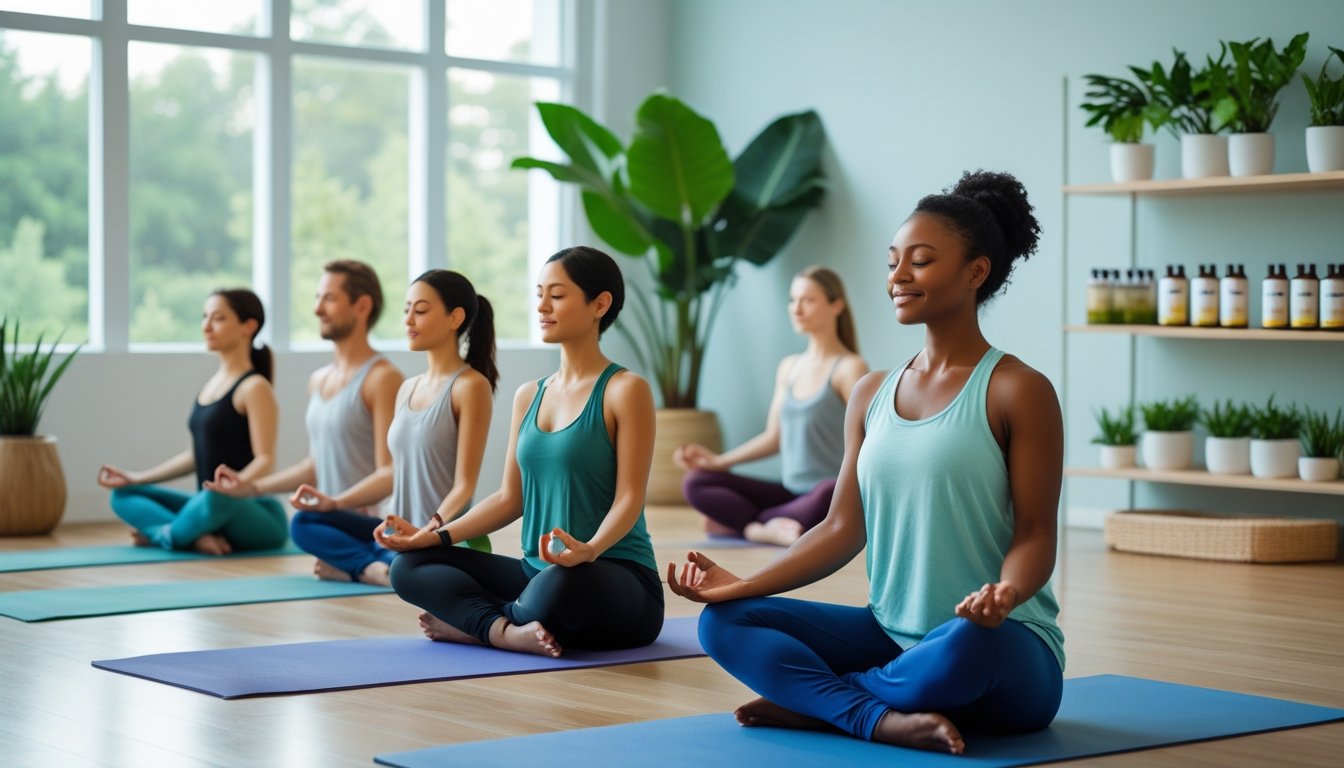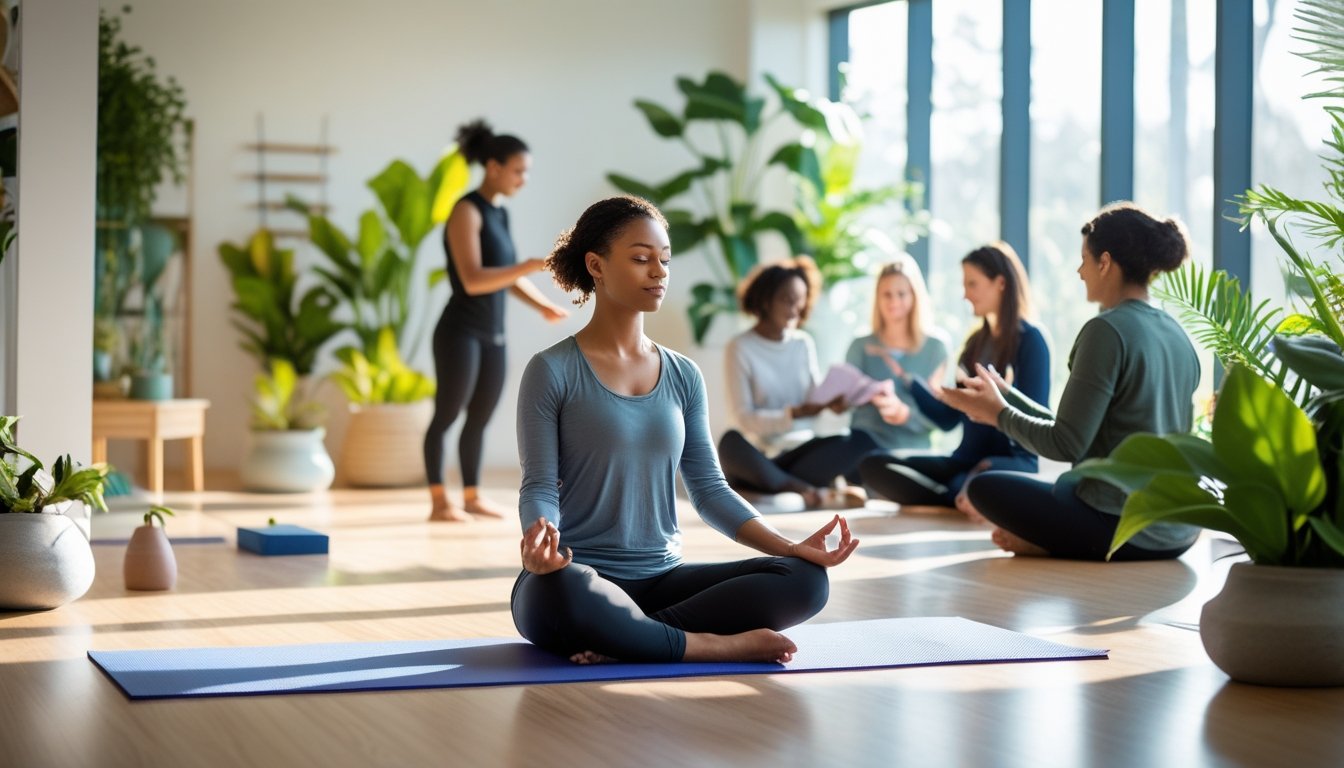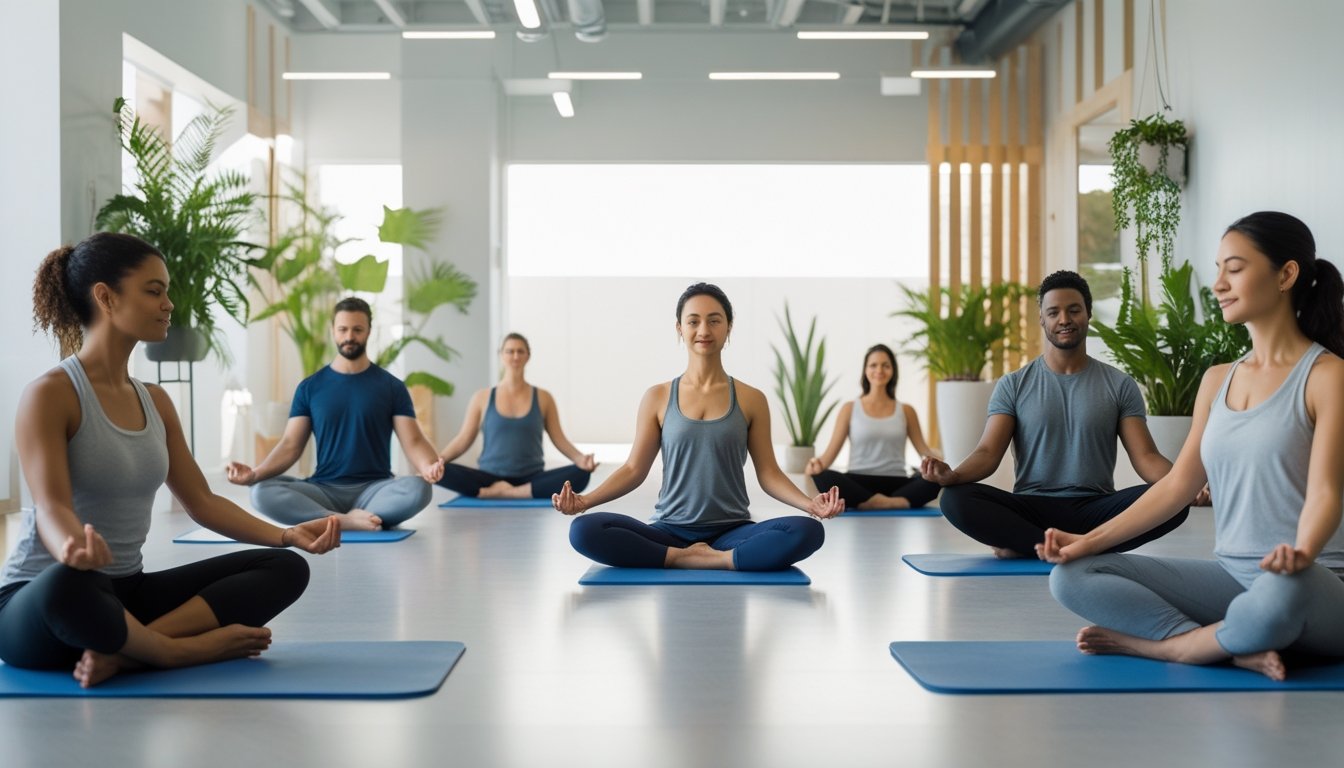Late updated: 18 Aug 2025 15:08
Written by: Ella Thompson
Redefining Recovery: Innovative Strategies for Wellness
In recent years, the concept of recovery has evolved beyond traditional boundaries, leading us to explore a more holistic approach to wellness. While addiction recovery remains a central theme, it now encompasses healing from a range of challenges, including mental health issues and trauma. Our aim is to redefine recovery as a journey that embraces interconnectedness of mind, body, and spirit. This expanded perspective empowers individuals by recognising diverse paths to healing.

Adopting a fresh approach to recovery challenges the rigid structures that have long dominated the field. Many of us have experienced or witnessed narratives driven by strict abstinence and conformity, but there is now a growing shift towards integrative and compassionate methods. These new strategies not only address symptoms but actively promote balance and well-being. The flexibility of these strategies helps dismantle barriers, fostering an inclusive environment that supports personal growth and community connection.
We believe the traditional models of recovery are being transformed by innovative strategies that nurture individual transformation. This transformation can be especially impactful when supported by holistic therapies and positive psychology. By embracing this broader vision of recovery, we open the door to sustainable wellness and fulfilment.
Key Takeaways
- Recovery now includes mental health and trauma alongside addiction.
- Individualised, holistic strategies replace rigid, traditional models.
- Personal growth is fostered through innovative wellness approaches.
Redefining Recovery: A Holistic and Inclusive Approach
In redefining recovery, we are embracing a broader understanding that goes beyond traditional methods. Our focus is on holistic and inclusive practices that acknowledge diverse paths and empower individuals throughout their recovery journey.
The Paradigm Shift from Abstinence to Individual Journeys
Historically, recovery was often equated solely with abstinence. Many treatment programmes were rigid, focusing strictly on avoiding substances. This narrow view has evolved. We now understand recovery as a deeply personal journey shaped by various factors, including mental health and personal goals.
Individuals in recovery deserve flexible support systems that cater to their unique needs. Emphasising a singular path overlooks the complex interplay of personal experiences and challenges. Modern recovery approaches encourage exploration of various therapies, from integrative treatments to mental health services, which honour the individual's personal journey.
Honouring Diverse Paths to Wellness
Recognising diverse paths to recovery invites us to celebrate the richness of differing backgrounds and experiences. Each person’s journey involves a unique blend of cultural, psychological, and physical elements. Recovery communities are increasingly inclusive, ensuring that all voices are heard.
By incorporating a range of treatment programmes, those in recovery can choose paths that resonate with them. These might include traditional therapies, spiritual practices, or creative outlets. By valuing all routes, mental health services create a supportive environment that acknowledges and values diversity in healing and wellness.
Empowering Personal Agency in Recovery
Empowering individuals through personal agency is a cornerstone of modern recovery. When we encourage people to take charge of their own paths, we foster a sense of ownership and responsibility over their wellness. This empowerment nurtures confidence and resilience.
Personal agency is enhanced by providing choices in treatment programmes and mental health services. These choices allow individuals to identify what works best for them, creating a tailored recovery experience. Encouraging self-awareness and decision-making builds a foundation of trust and empowerment, critical for sustainable recovery.
In embracing these principles, we strive to redefine recovery as an inclusive and holistic journey that prioritises individual agency and diverse paths to wellness.
Innovative Strategies for Wellness and Personal Growth

Innovative strategies for wellness and personal growth often focus on integrating mental, emotional, and social well-being practices. These approaches encompass mindfulness, meditation, community building, and compassionate service, offering pathways towards a more comprehensive recovery experience.
Mindfulness, Meditation, and Yoga in Recovery
Mindfulness practices help us focus on the present moment, reducing anxiety and enhancing self-awareness. When incorporated into recovery strategies, mindfulness, alongside meditation, serves as a tool for emotional regulation and stress management. Meditation techniques, such as mindful breathing, can lower stress levels and promote inner peace.
Yoga, blending physical exercises with mindful breathing, supports mental clarity and boosts resilience. By encouraging a connection between mind and body, yoga aids recovery journeys, fostering personal growth and reinforcing positive life changes. Collectively, these practices create a holistic framework for those seeking a renewed sense of well-being.
Integrating Passion, Compassion, and Service
Our pursuit of wellness should involve elements of passion, compassion, and service. Engaging deeply with activities that ignite passion enhances personal motivation and fulfilment. Service to others cultivates compassion, helping us shift focus from our struggles to making positive contributions in the lives of others. Volunteering is one way to integrate compassionate service into daily routines.
By aligning our core values with actions, we're encouraged to pursue meaningful connections and self-understanding. This integration supports stress management by creating purpose-driven experiences and facilitates personal growth through empathy and altruism. It’s not only about healing ourselves but extending our wellness journeys towards transformative community contributions.
Fostering Community Connection and Support
Community connection is crucial in reinforcing sustainable recovery and personal growth. By engaging in a supportive network, individuals benefit from shared experiences and encouragement. These connections provide reinforcement, helping us to stay motivated and accountable in our wellness goals. Safe spaces allow us to express vulnerabilities and explore collective healing.
Group therapy sessions offer a structured way to build these connections, as they provide platforms for mutual support and shared learning. Community-focused healing helps develop a sense of belonging, vital for emotional and mental resilience. By fostering encouraging environments, we promote collective well-being and nurture personal growth.
Frequently Asked Questions

Exploring wellness involves understanding different strategies like holistic approaches, mental health support, and healthy lifestyle choices. Emphasising community and personalised recovery techniques can offer a fresh perspective on traditional models, enriching the process.
What strategies contribute to a holistic understanding of wellness?
Holistic wellness considers the interconnectedness of body, mind, and spirit. We incorporate practices such as mindfulness, stress management, and emotional regulation to foster a comprehensive approach. Emphasising balance, these strategies provide a foundation for a fulfilled and healthy life.
How does integrating mental health support enhance the recovery process?
Mental health support is crucial for recovery, addressing foundational emotional and psychological needs. We include therapy, counselling, and self-assessment tools. These elements help individuals navigate challenges, identify triggers, and build resilience, complementing other recovery efforts.
In what ways can nutrition and physical activity influence rehabilitation outcomes?
Nutrition and physical activity are vital components that enhance rehabilitation outcomes. A balanced diet supports brain function and energy levels, while regular exercise aids in stress reduction and physical well-being. Together, they create a conducive environment for recovery and long-term health.
What role does community support play in sustaining long-term recovery?
Community support provides essential encouragement and shared experiences. By connecting with others facing similar challenges, we gain confidence and motivation. Community groups, support networks, and peer mentors all contribute to maintaining accountability and sustaining recovery momentum.
How do contemporary recovery models differ from traditional methods?
Contemporary recovery models expand beyond merely addressing symptoms. We see a shift towards personalised approaches that consider individual goals and preferences, focusing on empowerment and long-lasting change. This contrasts with traditional models, which often emphasise standardised treatment paths.
What are the key elements of a personalised wellness plan?
A personalised wellness plan is tailored to individual needs and circumstances. Key elements include setting realistic goals and prioritising personal values. We incorporate specific strategies like individual therapy, lifestyle changes, and support systems, ensuring the plan adapts to ongoing progress and evolving needs.
